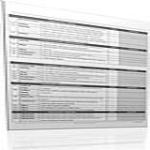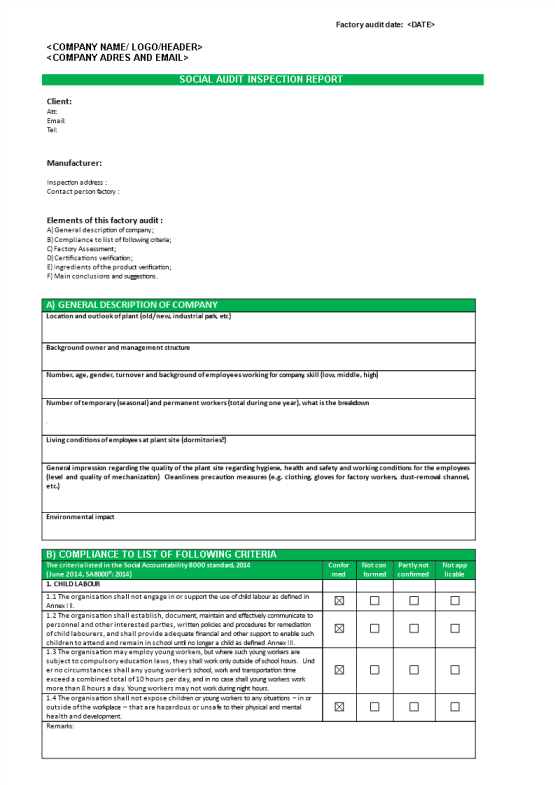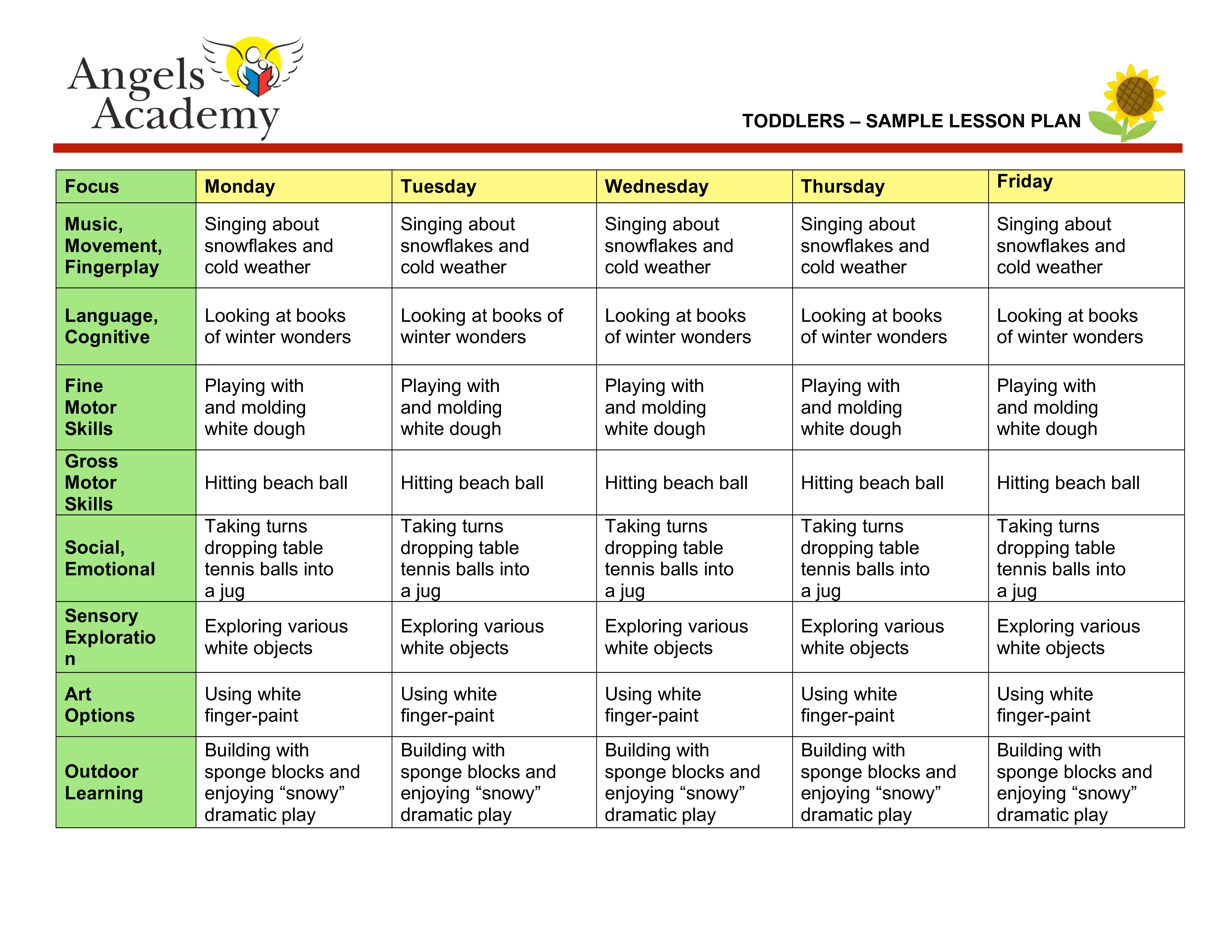Toddlers Lesson Plan
Save, fill-In The Blanks, Print, Done!

Download Toddlers Lesson Plan
Adobe Acrobat (.pdf)- This Document Has Been Certified by a Professional
- 100% customizable
- This is a digital download (81.02 kB)
- Language: English
- We recommend downloading this file onto your computer.
Do you need a template for Toddlers Lesson Plans? When creating a lesson plan for a toddler, what should be included? Our template provides detailed instructions on how to create a successful lesson plan for toddlers. It includes suggestions for activities, learning objectives, and evaluation criteria. Download our template now and get started on creating an engaging and effective lesson plan for toddlers.
A Toddler's Lesson Plan is a structured outline or guide developed by early childhood educators or caregivers to facilitate age-appropriate learning and development activities for toddlers, typically aged 1 to 3 years old. These lesson plans are designed to provide toddlers with engaging and stimulating experiences that support their physical, cognitive, social, and emotional development. The focus of a toddler's lesson plan is on exploration, play, and fostering a nurturing and safe environment. Here are some key elements often included in a toddler's lesson plan:
- Theme or Focus: Each lesson plan typically has a central theme or focus that provides context for the activities. Themes can vary widely, such as "Colors," "Shapes," "Animals," "Feelings," or "Family."
- Learning Objectives: While the objectives for toddlers are more general and developmental, lesson plans may include broad goals like promoting language development, encouraging fine and gross motor skills, enhancing social interaction, and fostering creativity.
- Activity Descriptions: Lesson plans outline specific activities and experiences that are developmentally appropriate for toddlers. These activities can include sensory play, art and craft projects, songs, stories, simple games, and outdoor playtime.
- Materials: A list of materials and supplies required for each activity is provided. Materials often include age-appropriate toys, art supplies, books, and any other items needed for the activities.
- Timing: Lesson plans may suggest a rough schedule or sequencing for activities, taking into account the short attention spans of toddlers. Flexibility is important, as toddlers' needs can change quickly.
- Guidance for Caregivers: For lesson plans intended for parents or caregivers, guidance on how to facilitate the activities, support the child's learning, and encourage engagement is often included.
- Safety Considerations: Safety is a top priority in toddler lesson plans. Guidelines for creating a safe environment, including childproofing recommendations, are typically provided.
- Assessment and Observation: Some lesson plans include space for caregivers or educators to jot down observations of the child's behavior, interests, and developmental milestones. This information can be valuable for tracking progress.
- Extension Activities: In some cases, lesson plans suggest extension activities or modifications to make the learning experience more challenging or adaptable to individual children's needs.
- Parent Communication: For lessons provided by early childhood educators, there may be a section for communicating with parents or guardians about the activities and what children are learning.
Toddler lesson plans aim to provide a balanced mix of structured activities and free play, recognizing that play is a crucial component of early childhood development. The focus is on creating a nurturing and stimulating environment that supports toddlers as they explore, learn, and develop essential skills during this critical stage of growth. These plans are flexible and can be adapted to the unique needs and interests of individual toddlers.
For those who are giving classes to toddlers, this template will make a big impact on achieving your goals faster!
It provides you structure you and the toddlers need. Everyday activities to keep them busy and happy. Fun activities, such as:
It provides you structure you and the toddlers need. Everyday activities to keep them busy and happy. Fun activities, such as:
- music, movement, and fingerplay
- language and cognitive
- fine motor skills
- gross motor skills
- Social and emotional skills
- sensory exploration
- art options
- outdoor learning activities.
Try out our online Free and Premium Professional templates, forms and contracts today.
Save, fill in the blanks, print …and done!
DISCLAIMER
Nothing on this site shall be considered legal advice and no attorney-client relationship is established.
Leave a Reply. If you have any questions or remarks, feel free to post them below.
Related templates
Latest templates
Latest topics
- Excel Templates
Where do I find templates for Excel? How do I create a template in Excel? Check these editable and printable Excel Templates and download them directly! - GDPR Compliance Templates
What do you need to become GDPR compliant? Are you looking for useful GDPR document templates to make you compliant? All these compliance documents will be available to download instantly... - Google Docs Templates
How to create documents in Google Docs? We provide Google Docs compatible template and these are the reasons why it's useful to work with Google Docs... - IT Security Standards Kit
What are IT Security Standards? Check out our collection of this newly updated IT Security Kit Standard templates, including policies, controls, processes, checklists, procedures and other documents. - Letter Format
How to format a letter? Here is a brief overview of common letter formats and templates in USA and UK and get inspirited immediately!
cheese



